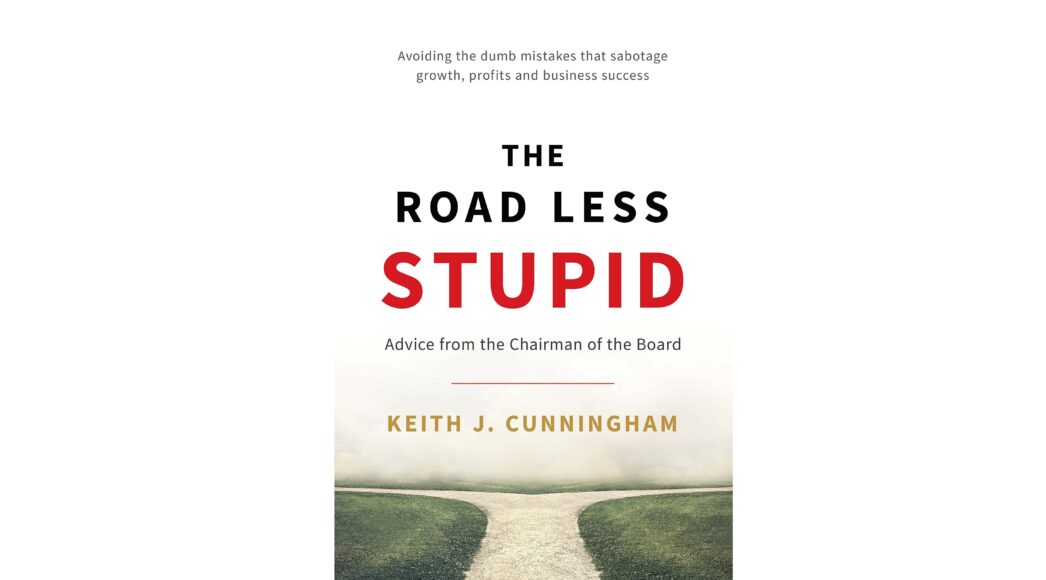My summary notes:
Intro: A great business book on leadership, delegation, asking the right questions, finding the cause not the symptom.
Business is an intellectual sport.
The dumb tax – how much money would you have if you could take back 2-3 dumb financial decisions?
The discipline of thinking time. Not emotion. Start with a high value question.
- Find the unasked question.
- Separate the problem from the symptoms.
- Check assumptions.
- Consider second order consequences.
- Create the machine (plan and execute).
“How might I… so that I can…?”
Address the core problem, not the obvious symptom.
Thinking time. 45min and 15min summary. No distractions.
Few things are more common than unrewarded artistic and technical expertise.
4 hats. Creator, technician, owner, investor.
Growth is inversely proportional to direct control. I.e. have to delegate, trust and check.
Get a board to add valuable outside insight.
Culture is continually having a conversation about the rules of the game.
Clarity equals power.
Motivation is for amateurs. Scoreboard the ‘A’ employees.
Ordinary things, consistently done, produce extraordinary results.
Don’t try and think of the ultimate solution. Start with what 5 things you can start or stop to improve now.
What am I consistently doing right or wrong?
Find out what customers want, go and get it, give it to them.
When talking to employees. ‘Help me understand…what do you recommend?’
Good systems are leverage. More with less.
USMC. If you want the most, make it easy. If you want the best, make it hard.
Three pillars of success:
- Write down your major outcomes every day.
- Plan day before it starts.
- Be accountable to someone.
What consistently hijacks my calendar?
Survival requires more curiosity and less arrogance, more humility and less need to be right, better questions and fewer answers.
Pick the strategic solution, not the tactical one.
Who do I want to buy from me? What must happen to cause them to buy? What must happen to keep them coming back? What could happen to cause them not to buy?
Where are you spending money on a solution that’s been sold to you, not the one that fixes the root cause?
Remember, you’re an employee in your own business! Treat yourself as one. Performance development, accountability etc.
Pretend you’re on the board of directors of you. What would you say?
Employees taking ownership is better than systems, to keep standards high.
A culture change starts with an apology from you for abdicating leadership, and a promise to all to take ownership.
What is my vision of excellence, of myself?
Imagine you met the man you could have been.
Custom service, empowering employees. Name a customer that doesn’t want to be an exception to all these rules.
Don’t neglect your old proven sales systems for you new shiny unproven ones.
Time, quality or price. Pick 1 or 2.
What is our promise to our customers?
You can get rich with a terrible product, e.g. McDonalds. It’s how you do it.
Revenue growth funnel:
- Keep more customers
- Increase referrals or repeats
- Define and enhance certainty of success
- Enhance/train sales process
- Increase conversion
- Increase transaction size
- Increase frequency
- Increase leads/drive traffic
Don’t sell a business. Hire your replacement and keep it.
What concentration risks do you have? Customer, supplier, provider, owner?
The value is not in the plan, it’s in the planning.
What do I know I need to do and am not?
Cause and effect. Want an effect? Do the cause. I.e. don’t just measure KPI, measure cause.
Start fewer things, finish more things.
